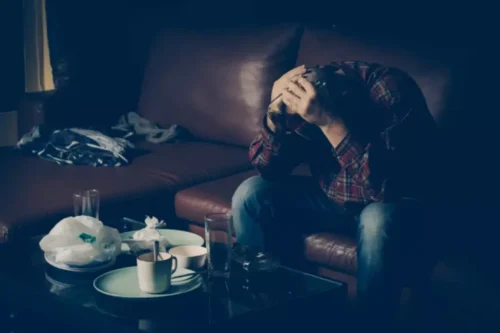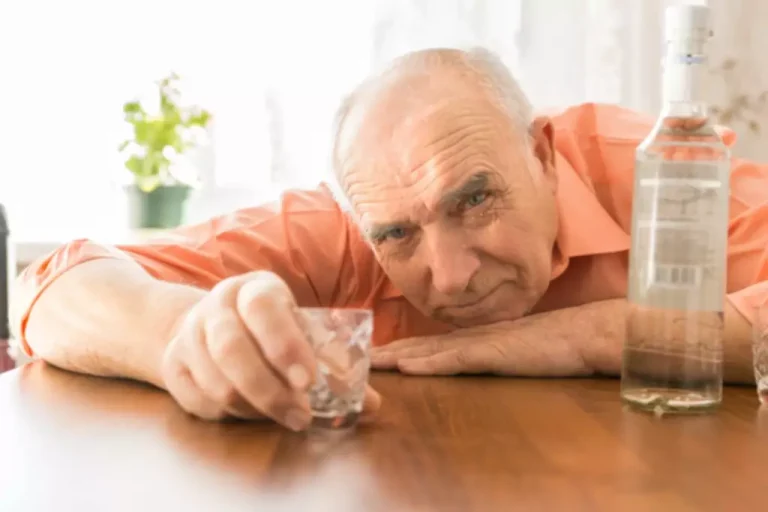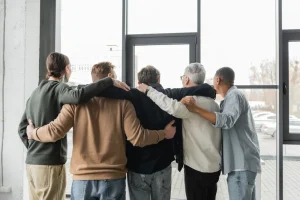Alcohol and Insomnia: Everything Your Need to Know


If the sleep ramifications aren’t enough to make you reconsider your alcohol intake before bed, perhaps cognitive decline might grab your attention. To put that into perspective, society considers https://ecosoberhouse.com/article/the-5-risks-of-drinking-after-work/ a single serving to be 1.5 ounces of liquor, 5 ounces of wine, or 12 ounces of beer. In other words, 3 full servings of any alcoholic category starts the process of sleep deterioration.
- There are many medications used to treat insomnia, including benzodiazepine and nonbenzodiazepine medications.
- However, it is crucial to have a rough timeline in mind to get an idea of what to expect.
- The mix of poor sleep patterns and alcohol dependency can often blur the line between work and personal life, amplifying the stress.
- This is because alcohol is a costly habit, so giving it up can free up some extra cash.
Can the Rise of Chronoworking Help Fix Our Sleep?
The good news is that there are a range of strategies you can use to make sure you’re sleeping as well as possible. Once you abstain from it, your brain can start rebalancing itself, leading to better cognition, improved concentration, and memory – crucial elements for professional success. Lastly, solid sleep can help maintain a strong immune system, reducing the risk of falling ill and ensuring a more consistent work schedule. Participation in support groups allows dismissing misconceptions and fears about insomnia.


The Structural Inequality of Sleep: An Interview With Dr. Dayna Johnson
Drinking alcohol can disrupt the rapid eye movement (REM) phase of sleep, an important, restorative stage of deep sleep during which dreaming occurs. This does not mean that a mental health condition will necessarily go aware when you stop drinking but abstaining from alcohol use can improve your symptoms and lead to better treatment outcomes. It’s important to remember that they are only temporary and will usually subside within a few days.
- When a person drinks alcohol, doing so in small or moderate amounts several hours before sleep can reduce the chance of sleep issues.
- Because of the damage that alcohol can do to your sleep cycles, sleep problems are common, even if you stop drinking.
- Treating insomnia earlier can prevent further complications such as mental health disorders or poor work performance.
- And if you do decide to drink every now and again, check RISE to find out when to stop to reduce the negative impact alcohol can have on your sleep.
- By understanding the whys and hows behind insomnia, we can devise strategies to reclaim your sound sleep.
Study Links Bed Sharing to Higher Rate of Sudden Unexpected Infant Deaths
- They may believe it reduces their anxiety over the day’s events and helps them get to sleep.
- Some people also find journaling helps them to reduce feelings of anxiety.
- If that mimosa with brunch hits you particularly hard, it may be the result of circadian timing.
- This sleep cycle disruption is what causes the person to feel tired and “fuzzy” the next day and can lead to further sleep issues, such as insomnia or alcohol addiction over time.
- These immersive soundscapes can make your walk around your neighborhood more immersive, giving you more mental space to connect with yourself and reduce your stress.
Research shows alcohol often has a detrimental effect on your ability to access high quality, deep sleep. Even if you do fall asleep faster after a drink, you’re likely to have a disturbed night. Alcohol can cause insomnia because of the damage that alcohol can do to your sleep cycles and circadian rhythm. This can lead to additional effects like daytime sleepiness and grogginess.
What you can do if your sleep is impacted


Engage in calming activities such as taking a warm bath, reading a book, or listening to soft music. These activities can replace the sedative effects of alcohol, easing the transition into sleep for those who find it hard to sleep without alcohol. While heavy alcohol use can trigger insomnia, the opposite is also true. People with insomnia have an increased risk of developing alcohol use disorder, potentially because many individuals turn to alcohol as a sleep aid.


Because of drinking’s negative impact on sleep cycles, a person does not sleep as well if they drink before bed. CBT-I is a first-line treatment for insomnia, both in those with and without alcohol use disorder. For people who snore or who have sleep apnea—a disorder that causes repeated pauses in breathing during sleep—drinking alcohol tends to aggravate symptoms. If you are one of the nearly two thirds of Americans who drink alcohol, chances are, you’ve had a drink in the hours before bedtime. Maybe you enjoy a glass of beer or wine after dinner, or your weekends include drinking with friends at bars or social events.
- Likewise, long-term reliance on alcohol for sleep can contribute to an alcohol use disorder (AUD).
- Along with anxiety and irritability, you may also experience mood swings when you give up alcohol.
- These include breathing exercises, visualization exercises and progressive muscle relaxation.
- It’s generally a good idea to limit the quantity and frequency of drinking altogether, especially in the evenings before bedtime to ensure a good night’s rest.
Then, as withdrawal from the drug or alcohol occurs there’s a big sleep-wake reversal which then needs to be addressed. One thing you’re likely to notice when you’re trying to stop using alcohol to sleep, is it takes a lot longer for you to fall asleep initially at night. sleep without alcohol Your routine before bed is how you tell your body and brain it’s time to switch off. Some people feel like they can’t sleep without having a hot bath, others rely on soothing teas. Some people in recovery may try to start drinking again to improve their sleep.


